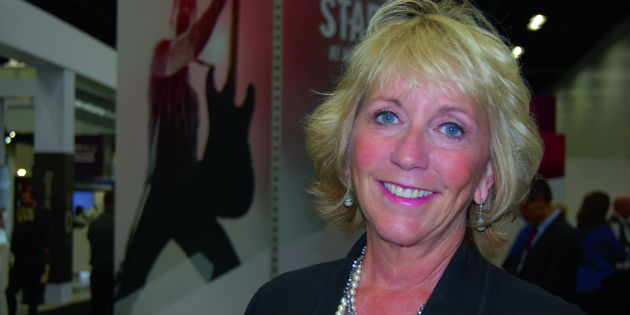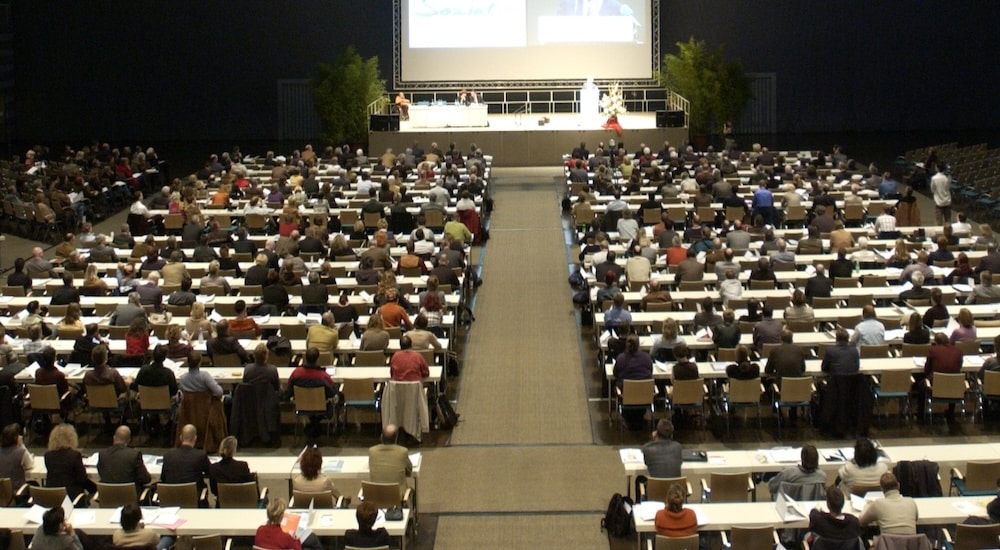Dr. Gyl Kasewurm: are you ready to grow your practice?
Interview
Independent hearing care practiceowner Dr. Gyl Kasewurm has made such a success of herbusiness in St. Joseph, Michigan, USA,that she now spends time coachingand advising other hearing carebusiness owners how they can maketheir practices more successful.

We caught upwith Dr Gyl at the American Academyof Audiology 2017 conference to gain someinsight into this highly successfulbusiness woman.
How did you get started in Audiology?
I’m from a small communityand when I became an audiologist I was alreadymarried and there were no audiology jobs in thecounty. So at that time the Occupational, Safety andHealth Association was mandating that any employerthat had sound levels over 85dB had to have theiremployees tested once a year. So, I went to the bankand borrowed money and I started with my industrialbusiness where I just went around, knocking on doors,saying to people, you need what I have. I would go tothe factories and test their employees, all three shifts,so sometimes it was an 18 hour day.
At this time, phones were tethered to the wall, soI would sit in my kitchen surrounded by books ofindustries that I knew would need testing. I wouldn’tlet myself get up until I had made 50 calls every day.That was 33 years ago. [Dr Gyl’s practice now employs three audiologists, three audiologist’s assistants, sixoffice staff and a dog!]
Your hearing care practice generates 10 x morerevenue than the average practice – how?
One of the things is that we have written goals.Most people don’t. We have written goals that wereview quarterly. Everybody in our organisation hasKey Performance Indicators that they have to worktowards and they are incentivised for them. We pushthose goals by the quarter, by the month, by the day.We will get in a huddle during the day and look atthe opportunities we have and what we need to goafter them. Some of our growth came by chance,some came by being a little unique, some by beingvery vocal and involved in the community and someof it came because we pushed for it. We’re comingoff a quarter that wasn’t as good as it should havebeen and I said to my COO ‘the next one will not belike that’, because we are going to do what it takesto make things work. We look at what is going right,what we are doing wrong, what we need to change. Ilove nothing more than at 3am when i wake up with anew idea. My favourite thing! I love reading about newideas, innovations, with all the things changing at themoment, the opportunities. There are obstacles butobstacles are really just opportunities.
Now, you have a second business?
I had always written and given a lot ofpresentations, but about three years ago I thoughtit was time to spread the message. Many privatepractitioners went to school to learn how to be audiologists or hearing instrument specialists butthey know nothing about business. Like most people,I didn’t go to school to be a business woman so Isought out help from the brightest and the best tomake myself a business woman. If you can’t run abusiness then it’s hard to stay in business.
I’m constantly growing and figuring out ways to dothings better; I have used assistants for 30 years. Thisensures the professional’s time is used for revenuegeneratingactivities and solving problems. We growalmost every year. We had a dip in 2008 when theeconomy tanked, but we worked through it. There is asaying ‘high water hides the stumps’, when you havea lot of cash flow it’s easy to let your expenses getout of line. And when the cash goes down you startseeing places where you spend too much. I had to letsome employees go, I had to change some pricingstrategies, I had someone who was writing money off,so I had to get in a billing person and billing software.We came back 35% stronger in a year.
Did you go back to college to study business ordid you learn from others?
When you work with people you have a lotof good resources. I have patients that have beenchairman of the board, of a billion dollar company inone case. I have always read that you should alwaystake one patient to lunch a week. Now, I don’t quitedo that, but I have an advisory board. I would ask theiradvice and they would say, ‘Gyl, you need to do this,you need to do that’. I am a voracious reader and I talkto a lot of people. I don’t have to know everything; Ijust need to know where to find it.
So you have an advisory board for your hearingcare practice?
We change it periodically so that it is not thesame people, but it is usually 10-12 people fromdifferent walks of life. We meet once a quarter andwe ask them ‘have you heard anything about us from your friends?’, ‘what do you think of our marketingefforts?’ One gentleman who is particularly helpful tome managed 22,000 employees at a company. In bigcompanies the advisory board gets paid. If you thinkthrough your patient database there are many peoplewith great expertise that can really help you and ifyou ask them, and they like you and trust you, theyare more than willing to help for free. It’s a very goodresource for a business.
How much of your time do you spend doingthe consultancy?
I’m still seeing patients 3 days a week, but to be honest that is going to change. It’s nice to geta feel for things and know how things are goingbut I really have some other ideas. I’m looking atrunning workshops that are about empowerment forfemales. In the US, despite the fact that the majorityof hearing healthcare professionals are female, theystill make 30% less than the men. So, we need tounderstand that the only way that is going to changeis if we change that. Women typically aren’t verygood negotiators; I love to negotiate.
It’s very difficult. Most offices are one professionaland one support person, so it is very difficult to workin your business and still have time to work ‘on’ yourbusiness. Even if you take a day a week, or a halfday, it will make all the difference in the world if youare really watching those numbers.
Who uses your consultancy services?
I give talks for manufacturers but most peoplethat come to my seminars are people that owna small business that is not progressing, it’s notdoing well, they’re not watching their numbers closeenough. They probably don’t charge enough. Manypeople in this profession are so likely to give thingsaway for free; they are afraid to charge people.Managing employees is difficult whether you haveone or 50 and that takes time. They have to havespecific job descriptions and that takes time. Somost of the people are people that are workingreally hard but they’re just not going anywhere.
After people come to seminars, do you go intotheir practices?
They come into my practice! It’s nice forpeople to come to us − seeing as our office isunique and very large − to see how we do things,to walk through the processes, how we schedulethings. Then we have fun at night and then the nextday we talk all about it and when people leave wegive them a zip drive of all the resources they needto go and do it.
We get 70% of our new patients from our patientreferral programme but if you go home and you’rebusy what is it going to take to create that programmeand the materials that go with it? Most people justdon’t get to it. So we say, ‘here’s the cards, alreadydesigned, all you’ve got to do is put your logo on it’.We stay in touch to see how it’s going.
Audiology has afforded me a life that is unbelievablebut I’ve always known what I’ve wanted and I go afterit. I work very hard but it is my passion, it is what Ilove. Most people have one thing they do better thananyone else and if you can take that one thing andharness it, you will be very successful in life.
Dr. Kasewurm’spractice generates 10 times the gross revenue ofan average US practice. She is a Past President ofthe Michigan Academy of Audiology and servedon the American Academy of Audiology ExecutiveBoard for five years. In addition, the AmericanAcademy of Audiology honoured Kasewurm for herinnovation and contributions to the profession bypresenting her with a Distinguished AchievementAward in 2007.


